 W
WAeropark is an open-air aviation museum next to Ferenc Liszt International Airport, Budapest, Hungary. It is dedicated to the history of Hungarian civil aviation, featuring almost all aircraft types used by the now-defunct national airline Malév.
 W
WThe Aquincum Museum is a museum in Budapest, Hungary. It first opened in May 1894. Archeological findings from the remains of Aquincum are on display there. These include items from the local mithraeum. It has an indoor and outdoor part.
 W
WThe Budapest Museum Quarter is a proposed new cultural and tourist site to be located on Andrássy út in Budapest, Hungary, and has at its core the merger of the Hungarian National Gallery with the Budapest Museum of Fine Arts into one institution. The concept has been around since at least 2008 when the Director of the Museum of Fine Arts proposed combining the two collections. In 2010, the Fidesz political party included the idea in its election campaign. Several other Budapest museums would be affected by the plan, which faces not only economic and legal hurdles, but also criticism from both members of the public and art professionals alike.
 W
WThe Ernst Museum is an art museum located in Budapest's VI District. Since 2013, it is also home to the Robert Capa Contemporary Photography Center.
 W
WThe Museum of Ethnography is a national museum in Budapest, Hungary.
 W
WFerenc Hopp Museum of Asiatic Arts is an art museum in Budapest, Hungary.
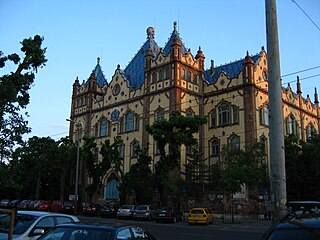 W
WThe Geological Museum of Budapest or Hungarian Institute of Geology and Geophysics is the main museum of geology in Hungary. It is located on the Stefánia út in the western part of Pest.
 W
WThe Glass House was a building used by the Swiss diplomat Carl Lutz to help Jews in Budapest during the Holocaust.
 W
WThe Budapest Hall of Art or Palace of Art,, is a contemporary art museum and a historic building located in Budapest, Hungary.
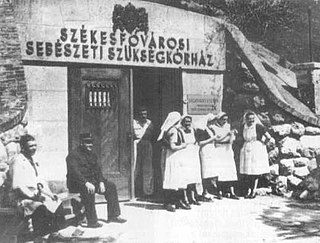 W
WThe Hospital in the Rock Nuclear Bunker Museum is the name given to a hospital created in the caverns under Buda Castle in Budapest in the 1930s, in preparation for the Second World War.
 W
WHouse of Terror is a museum located at Andrássy út 60 in Budapest, Hungary. It contains exhibits related to the fascist and communist regimes in 20th-century Hungary and is also a memorial to the victims of these regimes, including those detained, interrogated, tortured or killed in the building.
 W
WThe Hungarian National Gallery, was established in 1957 as the national art museum. It is located in Buda Castle in Budapest, Hungary. Its collections cover Hungarian art in all genres, including the works of many nineteenth- and twentieth-century Hungarian artists who worked in Paris and other locations in the West. The primary museum for international art in Budapest is the Museum of Fine Arts.
 W
WThe Hungarian National Museum was founded in 1802 and is the national museum for the history, art, and archaeology of Hungary, including areas not within Hungary's modern borders, such as Transylvania; it is not to be confused with the collection of international art in the Hungarian National Gallery. The museum is in Budapest VIII in a Neoclassical building, purpose-built during 1837–47 by the architect Mihály Pollack.
 W
WThe Hungarian Natural History Museum in Budapest, dating back to 1802, houses the largest natural history collections of Hungary and the region.
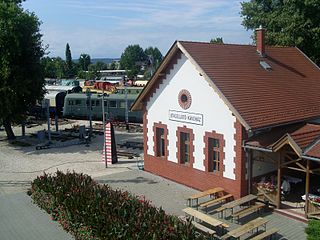 W
WThe Magyar Vasúttörténeti Park is a railway museum located in Budapest, Hungary at a railway station and workshop of the Hungarian State Railways (MÁV), the former Budapest North Depot. The museum covers more than 70,000 square meters and it features over one hundred exhibits, mostly including railway vehicles and equipment.
 W
WThe Koller Gallery is the oldest private gallery of Hungary, situated in the Castle District of Budapest. At the top floor of the three storied atelier-house, there is a memorial room for the Hungarian artist Amerigo Tot.
 W
WThe Budapest Hall of Art or Palace of Art,, is a contemporary art museum and a historic building located in Budapest, Hungary.
 W
WMemento Park is an open-air museum in Budapest, Hungary, dedicated to monumental statues and sculpted plaques from Hungary's Communist period (1949–1989). There are statues of Lenin, Marx, and Engels, as well as several Hungarian Communist leaders. The park was designed by Hungarian architect Ákos Eleőd, who won the competition announced by the Budapest General Assembly in 1991. On public transport diagrams and other documents the park is usually shown as Memorial Park.
 W
WMüpa Budapest is a building in Ferencváros, Budapest, Hungary, officially opened in March 2005. It is located near Rákóczi Bridge and was designed by Zoboky, Demeter and Partners Architectural Office. The National Theatre, which opened in 2002, is located next to it.
 W
WThe Museum of Applied Arts is a museum in Budapest, Hungary. It is the third-oldest applied arts museum in the world.
 W
WThe Museum of Fine Arts is a museum in Heroes' Square, Budapest, Hungary, facing the Palace of Art.
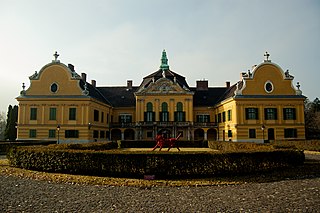 W
WNagytétény Palace or Száraz-Rudnyánszky Palace is today the furniture museum of the Museum of Applied Arts in Budapest established in 1949. It is located at 9-11 Kastélypark Street in the 22nd District of Budapest.
 W
WThe Petőfi Literary Museum (PLM) is a major Hungarian museum in Budapest. It was founded in 1954, as the successor organisation to Petőfi House. It was named to honour the memory of Sándor Petőfi.
 W
WThe House of Houdini is a museum and performance venue located at 11, Dísz Square, within the walls of the Buda Castle in Budapest, Hungary. The museum houses the only collection of original Houdini artifacts in Europe.
 W
WThe Magyar Műszaki és Közlekedési Múzeum, still often referred to with its former name, Közlekedési Múzeum, is a museum in Budapest, Hungary. It is one of Europe’s oldest transportation collections.
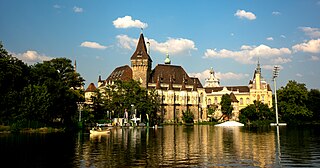 W
WVajdahunyad Castle is a castle in the City Park of Budapest, Hungary. It is a copy of Hunyad Castle, known as Corvin Castle, in Hunedoara, Romania. It was built in 1896 as part of the Millennial Exhibition which celebrated the 1,000 years of Hungary since the Hungarian Conquest of the Carpathian Basin in 895. The castle was designed by Ignác Alpár to feature copies of several landmark buildings from different parts of the Kingdom of Hungary, especially the Hunyad Castle in Transylvania. As the castle contains parts of buildings from various time periods, it displays different architectural styles: Romanesque, Gothic, Renaissance, and Baroque. Originally, it was made from cardboard and wood, but it became so popular that it was rebuilt from stone and brick between 1904 and 1908. Today, it houses the Museum of Hungarian Agriculture, the biggest agricultural museum in Europe.